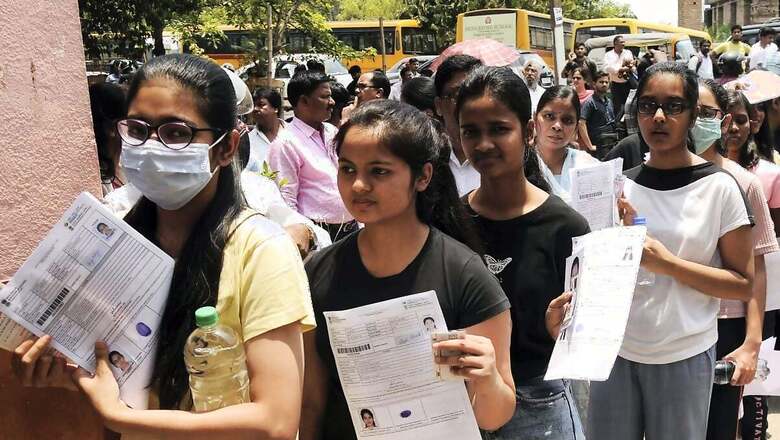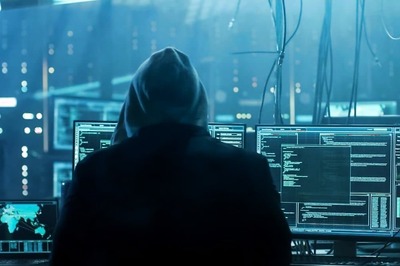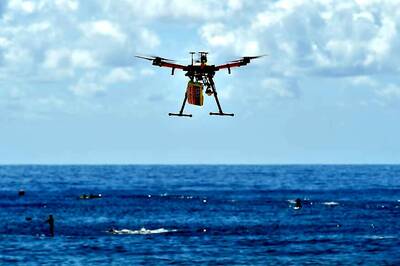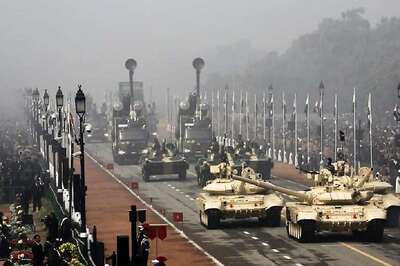
views
Amid the concern in government over integrity of various competitive examinations such as National Eligibility cum Entrance Test (NEET) and University Grants Commission (UGC) that has prompted deferment and Central Bureau of Investigation (CBI) probes, the country’s premier examination body, Union Public Service Commission (UPSC), has decided to roll out new measures to prevent any chance of cheating or unfair means.
Over 26 lakh candidates appear for 23 different examinations conducted by UPSC in a calendar year, including over 10 lakh in the Civil Services Preliminary Examination every May. The UPSC had on June 10 invited bids to make use of the latest digital technology to match and cross-check the biometric details of the candidates and to monitor various activities of the candidates during the examination to prevent cheating, fraud, unfair means and impersonation. Public Sector Undertakings (PSUs) with the requisite expertise can apply.
“The Commission desires to incorporate Aadhaar-based fingerprint authentication (else digital fingerprint capturing) and facial recognition of candidates, scanning of QR Code of e-Admit Cards and monitoring through live AI-based CCTV video surveillance,” the UPSC has said in the tender document accessed by News18. UPSC is a constitutional body which has an impeccable record in conducting examinations for appointment to the services of the Union – for induction to Group ‘A’ and Group ‘B’ posts of the Government of India.
The move comes amid a series of controversies around competitive examinations, with a CBI probe being ordered regarding complaints of certain irregularities in the conduct of NEET-UG, postponement of UGC-NET and the NEET-PG examinations this month. The Ministry of Education has also set up constitutes a High-Level Committee of Experts to ensure transparent, smooth and fair conduct of examinations and suggest reform in the structure and functioning of the National Testing Agency (NTA) and re-look at data security.
UPSC AIMS FOR UPGRADE
The UPSC conducts 23 different examinations across 3,000 venues at 80 centres across the country. The Commission says it will provide candidate details like name, roll number, and photo etc seven days prior to the date of commencement of exam for use in the Aadhaar-based fingerprint authentication (else digital fingerprint capturing) process, facial recognition and QR code scanning of e-admit cards. The service provider will maintain the entire database and application server at two different seismic zones within India, one site as DC (Data Centre) and other site as DR (Disaster Recovery).
It has been stipulated that the service provider shall maintain strict secrecy and confidentiality and will not divulge any information relating to assignment or examination to any third party, person, individual or body corporate. The biometric authentication and QR code scanning will ensure impersonation control at the examination centres. A provision will also be made for real-time attendance monitoring system through secured web server as well as real-time monitoring of the enrolment activity along with GPS coordinates.
All data captured at each examination venue is to be intimated to UPSC 30 minutes before the end of each shift of the examination. QR code on the admit card would be scanned to auto-fetch the candidate’s details from the application database provided by the UPSC. This will be followed by Aadhaar-based fingerprint authentication else digital fingerprint capturing of candidate’s fingerprint data. The service provider shall then perform facial recognition of the candidate by a hand-held device before he/she is allowed to sit for the exam.
AI-BASED CCTVS TO KEEP AN EYE
The UPSC will also implement CCTV video surveillance with recording and live broadcast system to monitor various activities of the candidates and other persons deployed to conduct the commission’s examinations, the document says. Adequate number of CCTV colour cameras will be installed in every classroom (minimum 1 CCTV camera for 24 candidates), entry/exit gate and the control room where pre-examination sensitive material will be kept and opened and post-examination sensitive material will be packed.
The cameras will generate alerts if any movement is detected at entry/exit gates during examination, if the furniture inside the classrooms is not properly arranged, or if the cameras are offline or are tempered by masking or black screen page. Alerts will also be generated if there is any movement in classrooms one hour before or after the exam, if inactivity is detected in invigilator’s movement or in case of detection of crowd, fight, or conflict inside the classroom or if a mobile phone is detected inside the classroom with anyone.
“The AI should raise red flags at incidences, which would indicate cheating, unfair means, absence of invigilators, etc. The CCTV cameras should cover each and every candidate in exam venue without any blind spots such that every candidate is visible,” the UPSC document says.
The cameras will be connected to the Internet to relay the data to the control room setup at UPSC, New Delhi. UPSC installs jammers at every examination venue which are functional 30 minutes before the start of the exam till 30 minutes after completion of all sessions of the exam.




















Comments
0 comment